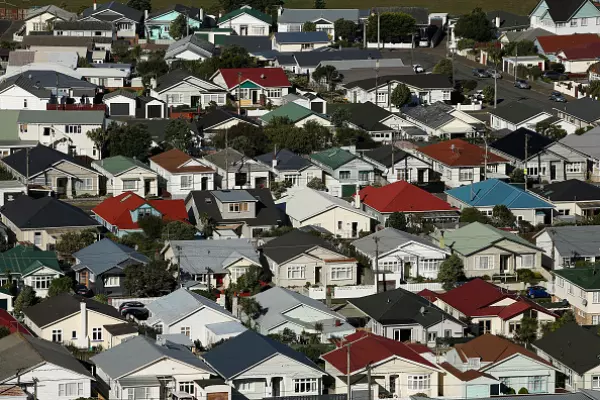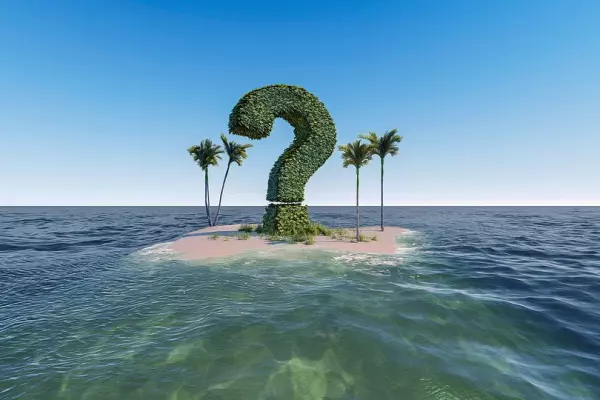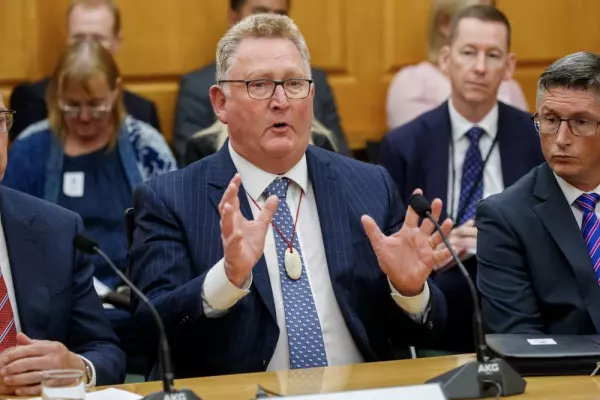The next global financial crisis is already on the horizon and has been created by the measures central banks and governments took to combat first the 2008/09 global financial crisis and then the covid pandemic.
A report by Bryce Wilkinson and Leonard Hong at the New Zealand Initiative is predicting the very low interest rates prompted by covid, central bank money printing and government stimulus could lead to a crash in global asset prices.
Former Reserve Bank chair Arthur Grimes wrote in the foreword that "central bank actions through the pandemic … have placed NZ at greater risk of an asset price collapse with ensuing economic pain; the risk is heightened by the unsustainable fiscal and monetary policies globally."
Grimes is urging the government to prepare for the next GFC by reducing debt, even though NZ is too small to prevent it.
"If there is one thing that four decades as an economist with close involvement in public policy has taught me, it is that the conclusion of this insightful monograph is correct: This time is not different!" Grimes said.
People tend to convince themselves ahead of every market crash, from the Asian crisis of the 1990s to the dot-com bubble bursting in 2000 and the GFC that this time will be different, Grimes told BusinessDesk.
The problem
"History tells us this is going to end badly, but we never know when. That's the problem." And the longer the current bull market lasts, the worse the crash will be, he said.
Wilkinson and Hong are warning that if asset prices collapse globally, businesses will fail and KiwiSaver funds and other investment portfolios will be destroyed and that recent homebuyers may find themselves owing more on their mortgage than their home is worth.
RBNZ sounded a similar warning on Wednesday about recent homebuyers, particularly first-home buyers with small deposits.
NZ house price inflation has been accelerating since the nation came out of last year's covid lockdown and it was 30.4% in the year ended September.
The NZ Initiative report notes that none of the major countries had restored their policy settings to pre-GFC levels before the pandemic struck – while NZ largely had, "it is not a major country".
"The artificially low interest rates have perverse effects. They encourage people to borrow to buy risky assets at inflated prices," the report said.
"That will end in grief. They also sustain heavily indebted firms with no future – so-called zombie firms. Those firms lock up resources that others could use better," it said.
Moral hazard
"They also encourage governments to borrow more and spend less carefully. That has future costs."
Governments, financial institutions and investors are being overly protected from financial risks.
"People (including governments) take less care when they think taxpayers are underwriting their risks. The technical term for such behaviour is moral hazard."
While governments have run large fiscal deficits in war time, "the major increases in these ratios in peacetime now is novel and disturbing", the report said.
"The current extremes exceed the extraordinary levels resulting from the authorities' responses to the GFC from 2007," it said.
While the Reserve Bank stopped its money-printing programme in July, central banks in the United States, Europe Britain and Japan are still conducting "quantitative easing", as it is known.
The opaque indebtedness in China is also a growing concern.
"It has become difficult to see how governments and central banks can unwind their extreme peacetime policy settings," the report said.
"Japan got into this situation first and shows no convincing signs of being able to extricate itself."
Governments fear cutting fiscal deficits will increase unemployment and central banks fear raising interest rates could do the same, and higher rates will also increase government deficits, the report said.
Russian roulette
"Monetary policy has become intertwined with fiscal policy. This politicisation of monetary policy is dangerous for financial stability," it said, noting that the European Central Bank's government bond purchases have exceeded the government budget deficits of Italy and some other countries for appreciable periods. "This does not look sustainable, legally, morally or economically."
While everyone will look to governments to bear the brunt of the next financial crisis, their capacity to do so is diminishing.
In a worst-case scenario, this may lead to voters throwing out governments and electing populist or authoritarian parties, leading to unrest and unpredictable policy responses.
A more optimistic scenario requires strong, sustained economic growth with interest rates and inflation remaining low.
It also requires governments to use revenue growth to pay down deficits rather than to increase spending.
"Sadly, each aspect of this scenario looks problematic. That makes the optimistic scenario look like wishful thinking."
For a small economy such as NZ, "prudent defence measures are the only option", including reducing net public debt and avoiding commitments to permanently increase spending.
The less prudent the government is, the more prudent individual New Zealanders will need to be.
"Borrowing heavily to buy property or shares at current prices is like playing Russian roulette with one's financial future."














